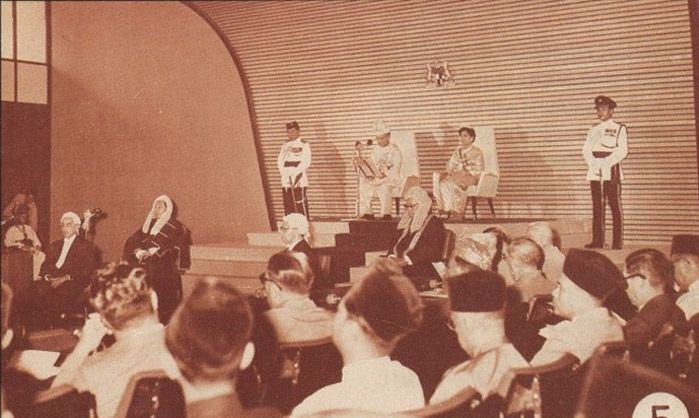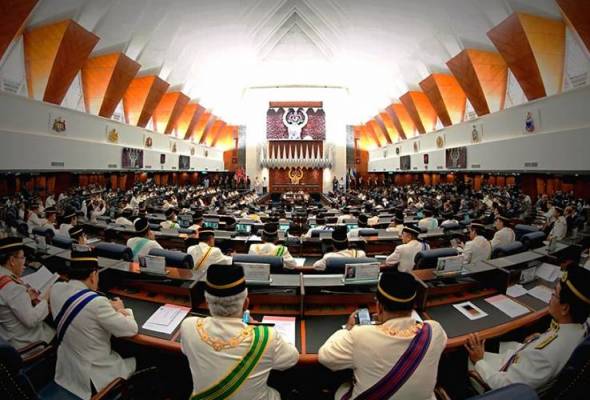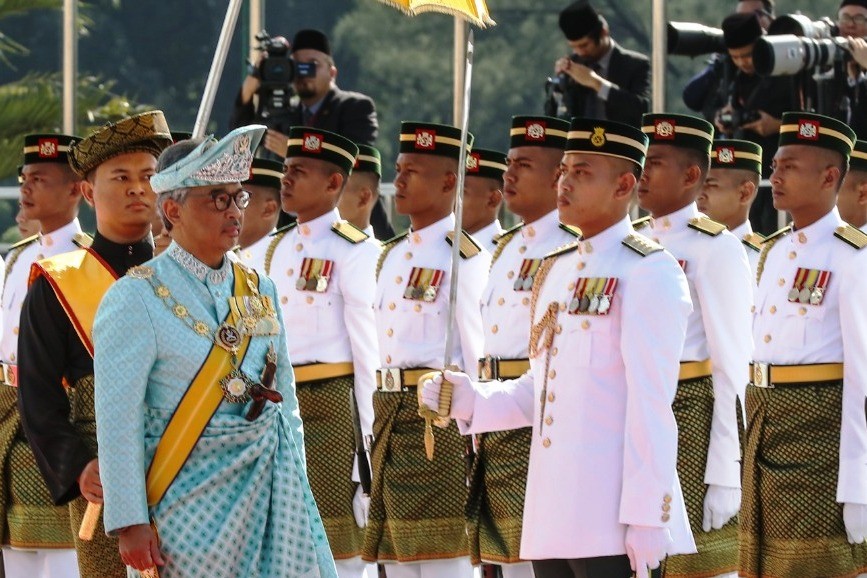
Whether you fancy Malaysian politics or loathe the antics, chances are you may have come across a post or two on the recent Parliamentary debate happening this week where a group of men in suits cuss on each other over matters of the nation.
This week’s sitting is long overdue (because MCO, period) especially after a sudden power transition that left Malaysians gasping for air in February.

For the uninitiated, the word Parliament itself could spell a circus of clowns but look closer beyond the parade and you’ll see a hall of thinkers, movers and shakers with the power to dictate your life forever, such as the Anti Fake News Act on your Facebook post or the Digital Tax on your Lazada purchase.
Why does it matter?
Because every legislation from the Dangerous Drugs Act to the tax on your Spotify comes from the Parliament and the Members of Parliament (MP), the people making these laws are the ones you voted for. See how everything ties down together?
So the next time you feel that a certain law is ridiculous or you simply can’t agree on something the administration has decided, just remember that you too had a part to play in it.
Back to the Malaysian Parliament, let’s break it down to a simpler explanation.
The History

Two years after independence, we had our first Parliament sitting.
It wasn’t in the iconic building we’re familiar with today (check your coins), it was a modest, 1930s ex-residential mansion in Jalan Ampang for the first sitting of all members of the Federation of Malaya (FM).
However, it was considered too low-key for a congregation of state leaders this significant – especially for matters of the nation at hand – so Tunku Abdul Rahman (first Chief Minister of FM) initiated an idea to build an official Parliament building.
He found a good spot on a hilltop known as West Folly Hill in Kuala Lumpur and after over a million bricks, 2,000 tonnes of cold steel and 54,000 tonnes of concrete slabs used with a total cost of RM18 million, the Parliament building was finally ready to roll with its first Parliamentary sitting comprising of the original coalition of UMNO, MCA and MIC with the PMIP (OG version of PAS) and PAP taking opposition roles (Singapore was still a part of us, mind you).
The Kerusi

The basic seating structure is this: You have a total of 292 seats – 70 allocated for senators and 222 allocated for Members of Parliament, the wakil rakyat and the YB that comes to officiate something near your taman once in a while.
On a simple voting process, these 222 MPs have the power to initiate a Bill, present it, discuss it and turn it into law.
But what’s a Bill?
The Bill
The Parliament Bill (or Rang Undang-Undang) is more or less a law but not quite there yet.
You see, as a country with a Parliament Democracy system, the journey of law (like that tax on your Netflix) starts from a Bill.
A Bill is an unofficial law that’s being presented by an MP, discussed with other MPs and then gets the seal of approval by the Yang di-Pertuan Agong. Only then will it be written and enforced as law.

The process of a Bill becoming law is quite simple, in theory.
Let’s say Y.B Ahmad representing Batu Tiga wants to legalise the use of medical marijuana. He will then need to present and propose a Bill in either of the two chambers of Parliament; the Dewan Rakyat or Dewan Negara.
This Bill will be officially read and explained to the other MPs before the next and most interesting process –the discussion.
Depending on the matter at hand and who’s talking, this is usually where the excitement, the fanfare or the chaos comes. Reporters and journalists usually have a ball over this part so Y.B Ahmad needs to have his facts and figures right to convince a vote from the MPs and turn a nay into a yay.
Fanfare aside, once the Bill has been voted a yay majority, it will then be presented again in the other house (it needs an okay from both the Dewan Rakyat and Dewan Negara) regardless of which house it was presented to before the final say is brought upon the Yang di-Pertuan Agong, who will then need to assent Y.B Ahmad’s Bill to legalise his proposal of said medical substance within 30 days, under Article 66(4) of the Federal Constitution (FC).

What happens if His Majesty, for whatever reason, chooses not to pass this Bill?
Well, the FC also says that a Bill passed by both houses will automatically become law after the 30 days expiry, with or without royal assent.
The Importance

So that’s why the Parliament is crucial as it’s essentially a part of you, no matter how boring you think it is.
By right, every single decision by the administration on a structural level needs to be presented, discussed and passed in the Parliament. This concept of separation of powers (Legislative, Executive and Judiciary) gives the whole system a balanced judgement.
The use of public funds, the management of the defence system, or even the allocation of your PRIHATIN aid needs to go through the system, brought up for discussion and be agreed upon at least in a simple majority.
The 222 MPs with opposing opinions and backgrounds make for a fair and just verdict in matters of public interest and for the greater good of the nation. This system, however, is perceived by some to have room for improvement in terms of age and gender-representation.
While it’s good to have more experienced statesmen, it’s also fair to say that having more female voices would bring a new perspective while the existence of younger representatives would help shed light on matters of the youth, who will eventually be leaders of the nation themselves.

While proficient debates are welcome in Parliament, the Malaysian public is now looking at a different side of the leaders from both sides of the benches portraying slightly less civility in presenting their case.
Some would say the Parliament in Hong Kong and India and the rest of the world have the same public debacle too but while most Malaysians are gripping with the bitter truth of life post-pandemic, the last thing we need is to see buffoonery in the Dewan Rakyat or Dewan Negara when all that is needed, is the right decision to steer our way to safety and health.
Talking about steering our way to safety, give this one a READ. It’s about the looming recession and how to best prepare for the worst.








